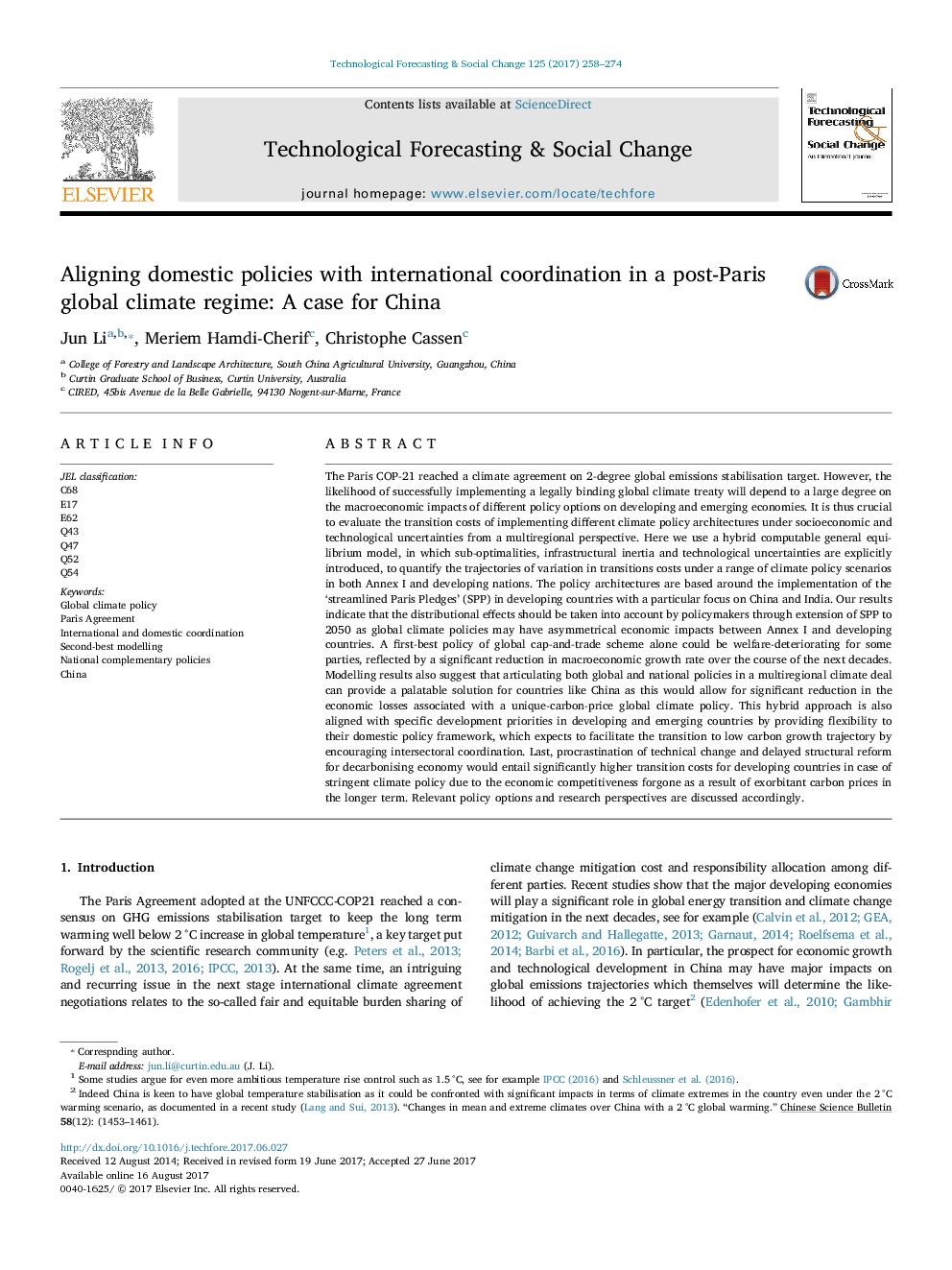ترجمه فارسی عنوان مقاله
هماهنگ کردن سیاست های داخلی با هماهنگی بین المللی در یک رژیم اقلیمی جهانی پس از پاریس: مورد برای چین
عنوان انگلیسی
Aligning domestic policies with international coordination in a post-Paris global climate regime: A case for China
| کد مقاله | سال انتشار | تعداد صفحات مقاله انگلیسی |
|---|---|---|
| 155326 | 2017 | 17 صفحه PDF |
منبع

Publisher : Elsevier - Science Direct (الزویر - ساینس دایرکت)
Journal : Technological Forecasting and Social Change, Volume 125, December 2017, Pages 258-274

